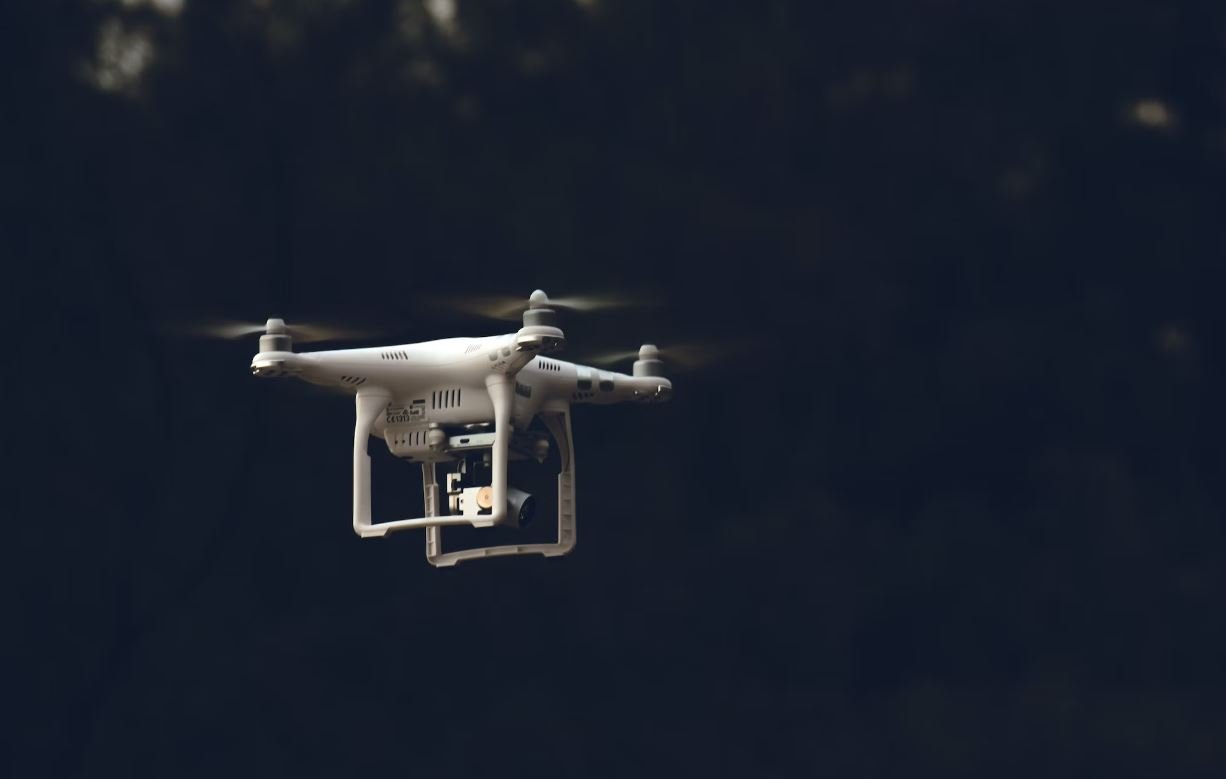Where Music Started
Music has been an integral part of human culture for centuries. It has evolved and transformed over time, shaping different cultures and societies throughout history. Understanding the origins of music can provide valuable insights into the human experience and the development of societies around the globe.
Key Takeaways:
- Music: An integral part of human culture for centuries.
- Evolution: Music has evolved and transformed over time.
- Cultural Impact: Understanding the origins of music provides insights into different societies and cultures.
Music’s origins can be traced back to ancient civilizations. The earliest known musical instruments date back tens of thousands of years, with various artifacts and findings indicating the existence of musical practices in early human societies. These early forms of music were often used in religious or ceremonial contexts, emphasizing the spiritual significance of sound.
Music has the power to transcend language barriers and evoke emotions beyond words. Ancient societies recognized this power and integrated music into their rituals to enhance their cultural practices and connections with the divine. These ancient musical traditions laid the foundation for the diverse musical landscape we enjoy today.
The Evolution of Musical Instruments
Over time, humans developed more sophisticated musical instruments. The progression from simple percussions to complex string instruments and wind instruments played a crucial role in expanding the possibilities of musical expression. The table below provides examples of ancient and modern musical instruments:
| Ancient Instruments | Modern Instruments |
|---|---|
| Flutes made from bones | Flutes made from metal or wood |
| Drums made from animal skin | Drums made from synthetic materials |
| String instruments made from animal gut | String instruments made from various materials like wood and synthetic fibers |
The constant innovation and improvement of musical instruments have allowed musicians to explore new sounds and push the boundaries of creativity. The wide variety of instruments available today is a testament to the richness and diversity of music worldwide.
The Birth of Notation
As music continued to develop, the need for a consistent way of recording and communicating musical ideas became essential. This led to the birth of musical notation, a system of writing music using symbols and notations. Musical notation enabled composers to preserve their compositions and allowed musicians to interpret and perform pieces accurately.
Here are some notable milestones in the history of musical notation:
- In Ancient Greece, early forms of notation involved using letters of the alphabet to represent specific musical notes.
- In the Middle Ages, neumes, a system of dots and lines placed above text, were used to represent melodic contours.
- In the Renaissance period, the modern staff notation system was developed, utilizing the placement of notes on a set of parallel lines.
Thanks to musical notation, composers and musicians can communicate and preserve their artistic vision across generations. It has become an indispensable tool for musicians and plays a vital role in the transmission of musical knowledge.
The Global Influence of Music
| Region | Influences |
|---|---|
| West Africa | Polyrhythms, syncopation, call-and-response |
| India | Classical ragas, intricate rhythms |
| Latin America | Afro-Cuban rhythms, samba, bossa nova |
Music has the power to transcend borders and connect people across different cultures. Various regions of the world have unique music traditions that reflect their history, beliefs, and values. These diverse musical influences have enriched the global musical landscape, inspiring artists and audiences around the world.
Through music, we can explore and appreciate the cultural diversity of our planet. It serves as a universal language that enables us to connect and understand one another on a deeper level.
In conclusion, music’s origins can be traced back to ancient civilizations, and it has evolved over time to become a vibrant and integral part of human culture. The development of musical instruments, the birth of musical notation, and the global influence of music are key factors that have shaped and enriched the world of music throughout history. Let us embrace the diverse sounds and melodies that surround us, as they are a testament to the creativity and passion of humanity.

Common Misconceptions
1. Music started with classical compositions
Many people mistakenly believe that music originated with classical compositions such as those by Mozart or Beethoven. However, music has its roots in much older cultures and civilizations that predate these famous composers.
- Music has been an integral part of human societies since ancient times.
- Ancient civilizations like the Sumerians and Egyptians had their unique musical traditions.
- Traditional folk music from various regions also predates classical compositions.
2. Music began solely as a form of entertainment
Another common misconception is that music started only as a medium of entertainment. While music does undeniably bring joy and entertainment to our lives, its origins and purposes are much deeper and broader.
- Music has been used for spiritual and religious rituals in many ancient cultures.
- Folk songs often served as a way to convey stories and oral traditions.
- In many societies, music played a role in healing practices and therapeutic rituals.
3. The Western world is the birthplace of all music
It is a misconception to believe that the Western world is the sole birthplace of music. While Western music has had a significant impact on global music trends, it is crucial to recognize the diverse musical traditions that have existed and still thrive in different parts of the world.
- Traditional music from diverse regions like Africa, Asia, and the Middle East has a rich history and unique characteristics.
- Indigenous music from various Native American tribes and Aboriginal cultures predates Western influence.
- World music genres like reggae, salsa, and bhangra have origins outside of Western traditions.
4. Music can only be created by professionals
Many people mistakenly believe that music can only be created by professional musicians. In reality, music is a creative outlet accessible to anyone who has a passion for it, regardless of their level of expertise or whether they have received formal training.
- Countless amateurs and hobbyists create beautiful music in their spare time.
- Technology has made music production more accessible, allowing everyday people to create their own compositions.
- Music therapy programs use music as a tool for personal expression and healing, regardless of skill level.
5. Music can only be appreciated in a certain genre or language
Another misconception around music is that it can only be appreciated if it falls within a specific genre or language. Music is a universal language that transcends cultural and linguistic boundaries, and the appreciation of it varies from individual to individual.
- People can appreciate various genres of music, including classical, rock, hip-hop, jazz, and more.
- Non-English music, like songs in other languages, can be enjoyed for their melodies and emotions even without understanding the lyrics.
- Cross-cultural collaborations in music showcase the harmony and beauty that can arise from blending diverse musical styles.

The Origins of Rhythm Instruments
In ancient civilizations, people used various objects to create rhythm and music. The table below showcases a few examples of early rhythm instruments and the cultures they originated from.
| Culture | Rhythm Instrument | Unique Feature |
|---|---|---|
| Ancient Egypt | Sistrum | Constructed from metal and had movable rings that created a jingling sound |
| Ancient Mesopotamia | Tambourine | Combined percussive sounds with jingling metal disks that were attached to the frame |
| Ancient China | Guqin | An early form of the zither, a stringed instrument utilizing plucking techniques |
| Ancient Greece | Hydraulis | An early organ that used water pressure to create sound |
| Ancient India | Tabla | A pair of drums with different sizes and tones, played with fingers and palms |
The Rise of Notation Systems
As music evolved, the need for standardized notation emerged. The following table presents notable music notation systems developed throughout history.
| Notation System | Origin | Unique Feature |
|---|---|---|
| Neumes | Western Europe (9th century) | Used symbols to represent pitch, but lacked precise rhythmic indications |
| Tablature | Medieval Europe | Represented music through numbers indicating fret positions on stringed instruments |
| Solfège | Medieval Europe | Assigned syllables to each tone, allowing singers to learn melodies and intervals |
| Staff Notation | Italy (11th century) | Adopted the use of a musical staff with lines and spaces to indicate pitch and durations |
| Graphic Notation | 20th-century avant-garde movement | Utilized non-traditional symbols and visuals to represent musical ideas |
The Birthplaces of Famous Genres
Throughout history, various genres of music have emerged, each with its own unique characteristics and influences. Here are some renowned genres and the locations where they originated.
| Genre | Origin | Defining Characteristics |
|---|---|---|
| Blues | Mississippi Delta, United States | Incorporated call-and-response patterns, expressive vocals, and often dealt with themes of hardship and sorrow |
| Jazz | New Orleans, United States | Characterized by improvisation, swing rhythms, syncopation, and a blend of European and African musical elements |
| Reggae | Jamaica | Rooted in African rhythms, emphasized strong bass lines, off-beat rhythms, and social and political messages |
| Flamenco | Andalusia, Spain | Known for passionate vocals, intricate guitar playing, handclapping, and rhythmic footwork |
| Raga | India | Based on complex melodic structures, improvisation, and specific emotional expressions |
Revolutionary Instruments and Their Innovators
Throughout history, musical instruments have undergone significant developments, leading to new possibilities of expression. Explore some revolutionary instruments and the visionaries behind them.
| Instrument | Innovator | Contribution |
|---|---|---|
| Electric Guitar | Les Paul | Paved the way for rock music with solid-body electric guitar designs and multi-track recording techniques |
| Moog Synthesizer | Robert Moog | Introduced one of the first widely available synthesizers, revolutionizing sound synthesis and electronic music |
| Piano | Bartolomeo Cristofori | Developed the first practical keyboard instrument that allowed variations in loudness by touch |
| Drum Kit | William Ludwig | Created the modern drum kit by incorporating diverse percussion elements into one instrument setup |
| Theremin | Leon Theremin | Devised one of the earliest electronic instruments, played without physical contact |
The impact of Music Streaming Services
In recent years, music streaming services have dramatically changed the way people consume and discover music. Explore the impact of these platforms through the following data.
| Streaming Platform | Number of Active Users (2021) | Number of Songs Available (2021) |
|---|---|---|
| Spotify | 345 million | 70 million |
| Apple Music | 75 million | 75 million |
| Amazon Music | 55 million | 75 million |
| YouTube Music | 30 million | 60 million |
| Deezer | 16 million | 56 million |
Women Pioneers in Music
Throughout history, women have made remarkable contributions to the music industry. This table highlights a few pioneering women and their achievements.
| Musician | Genre | Notable Accomplishments |
|---|---|---|
| Aretha Franklin | Soul | Became the first woman to be inducted into the Rock and Roll Hall of Fame |
| Nina Simone | Jazz/Blues | Advocated for civil rights through her music, known for her enchanting voice and powerful piano skills |
| Billie Holiday | Jazz | Considered one of the greatest jazz vocalists, known for signature songs such as “Strange Fruit” |
| Joan Baez | Folk | Used her music to protest against social injustice, particularly during the Civil Rights Movement |
| Björk | Experimental/Pop | Pushed boundaries with unconventional music, visually captivating performances, and unique fashion sense |
The Evolution of Music Formats
Over time, music formats have evolved, progressing from vinyl records to digital streaming. The following table highlights some notable formats and their respective years of introduction.
| Format | Year Introduced | Notable Features |
|---|---|---|
| Gramophone Record | 1889 | Allowed music to be recorded and reproduced for mass consumption |
| Compact Cassette | 1963 | Portable format, enabling personal music collections and mixtapes |
| Compact Disc | 1982 | Digital format with improved sound quality, durability, and accessibility |
| MP3 | 1993 | Compressed digital format facilitating easier file sharing and storage |
| Music Streaming | 2001 | Instant access to an extensive library of music through platforms like Spotify and Apple Music |
The Language of Music
Music employs a unique language for communication, transcending barriers and conveying emotions. The following table showcases various musical terms and their definitions.
| Term | Definition |
|---|---|
| Allegro | A fast, lively tempo |
| Pizzicato | Plucking the strings of a stringed instrument |
| Fortissimo | Playing very loudly |
| Arpeggio | A broken chord, playing the notes in succession rather than simultaneously |
| Adagio | A slow, leisurely tempo |
The Global Reach of Music Festivals
Music festivals bring together diverse artists and audiences from around the world, celebrating various genres and cultures. Explore some globally recognized music festivals and their locations.
| Festival | Location | Est. Attendance (Annual) |
|---|---|---|
| Coachella | California, USA | 125,000+ |
| Glastonbury Festival | England, UK | 135,000 |
| Tomorrowland | Boom, Belgium | 400,000+ |
| Rock in Rio | Rio de Janeiro, Brazil | 700,000+ |
| Mawazine Festival | Rabat, Morocco | 2 million+ |
Throughout history, music has played a vital role in societies, cultures, and personal lives. From the origins of rhythm instruments to the evolution of music formats, each era has contributed its unique sound and style. Today, music continues to evolve, facilitated by streaming services and embraced by festivals that unite people worldwide. With women pioneers breaking barriers and innovators pushing the boundaries of musical expression, the future looks promising for the continued exploration and appreciation of music, connecting people across the globe.
Frequently Asked Questions
What is the origin of music?
What role did music play in ancient civilizations?
How did early humans create music?
Are there any ancient musical notations?
Did music evolve differently in different regions of the world?
When did written music notation systems develop?
What impact did technology have on the history of music?
How did music change during the Renaissance period?
What is the influence of music from different cultures on contemporary music?
What is the future of music?




